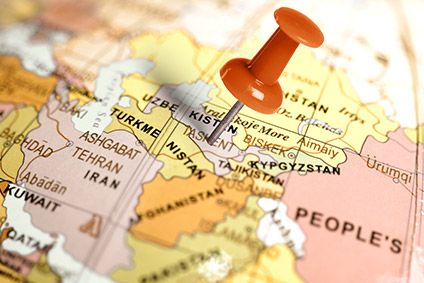
Plans appear to be making progress for a new agreement that would re-open Uzbekistan’s cotton sector to the international market while protecting labour rights.
A boycott against Uzbekistan cotton began in 2006 over the country’s long-standing practice of using forced labour to pick cotton – and is backed by more than 300 apparel brands and retailers.
But the government has been making progress to reform the sector, most recently arguing that removing the cotton boycott could see textile exports double – “growth that would create much-needed jobs” as the country tries to recover from the impact of the coronavirus crisis.
The latest US ‘2020 Trafficking in Persons Report‘ notes Uzbekistan has taken steps to address the use of forced adult labour during the annual cotton harvest through increasing remuneration to those picking cotton and improving working conditions to attract voluntary workers.
It adds the government ceased the systemic mobilisation of students, teachers, and health care workers during the 2019 harvest, and has continued to allow unimpeded access to international third-party monitors. The government also committed to eliminate cotton picking quotas – a contributing factor to forced labour – beginning in the autumn 2020 harvest.
Improvements have also stemmed from greater government law enforcement, with the number of labour inspectors doubling and new legislation criminalising forced labour.

US Tariffs are shifting - will you react or anticipate?
Don’t let policy changes catch you off guard. Stay proactive with real-time data and expert analysis.
By GlobalDataIn response, campaigners are starting to refocus their efforts on turning the Uzbek Cotton pledge into a catalyst for responsible sourcing and investment that supports labour and human rights in a reforming Uzbekistan.
Earlier this month the Cotton Campaign presented its proposal for a Responsible Sourcing Agreement framework (RSA) – “an innovative, co-governed agreement to re-open Uzbekistan’s cotton sector to the international market while protecting labor rights.”
Unveiled at the third annual meeting of the Consultative Council of the International Finance Corporation’s (IFC) Sustainable Cotton Supply Chain Project, the RSA would “facilitate responsible sourcing of cotton and cotton products by global brands and their suppliers while providing capacity building for cotton and textile clusters, farmers, and workers; monitoring; an enforceable grievance mechanism; and supply chain transparency.”
According to Bennett Freeman, co-founder of the Cotton Campaign: “The RSA agreement is the direct result of the Cotton Campaign’s constructive dialogue with the government of Uzbekistan over several years and reflects both the immense progress in addressing forced labor so far as well as the need to consolidate the reform process to ensure the protection of workers’ rights according to international standards.”
The RSA framework builds on international best practices and would ensure that Uzbek cotton producers meet international standards.
“We are encouraged by the historic progress underway in Uzbekistan and the government’s commitment to working with the Cotton Campaign to implement the RSA,” says Nate Herman, senior vice president of policy at the American Apparel & Footwear Association (AAFA).
“Our members are closely watching the development of the RSA and look forward to being able to encourage their suppliers to source from Uzbekistan responsibly.”
Allison Gill, senior cotton campaign coordinator at GLJ-IRLF (Global Labor Justice – International Labor Rights Forum) adds: “As brands are looking to get out of the Uyghur region, Uzbekistan provides an opportunity to develop new sourcing and to come in under a co-governed structure where workers, producers, and brands all have a seat at the table.”
According to the International Cotton Advisory Council (ICAC), Uzbekistan is the world’s eighth largest producer of cotton lint, producing 641,000 metric tonnes in the 2019/20 season – giving it a 2.5% share of the world market. This compares with India, the world’s largest producer at 6m metric tonnes with a 23% market share, and China, the second largest at 5.8m metric tonnes with a 22% share.



